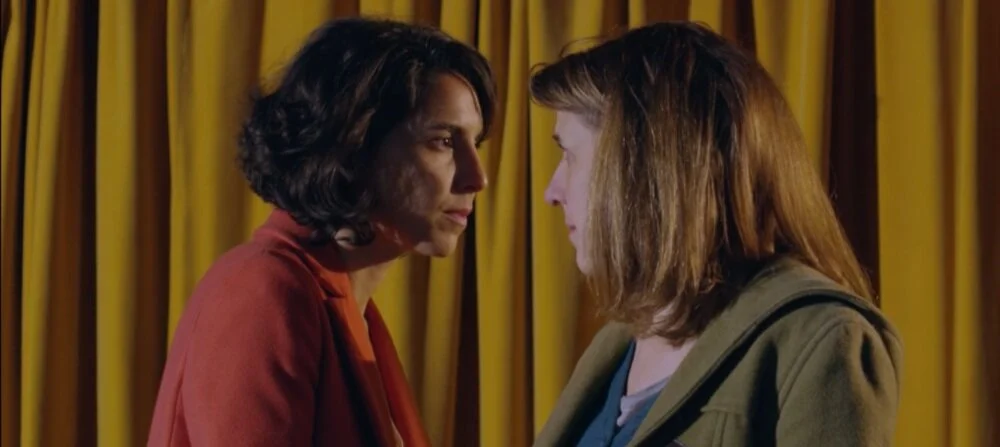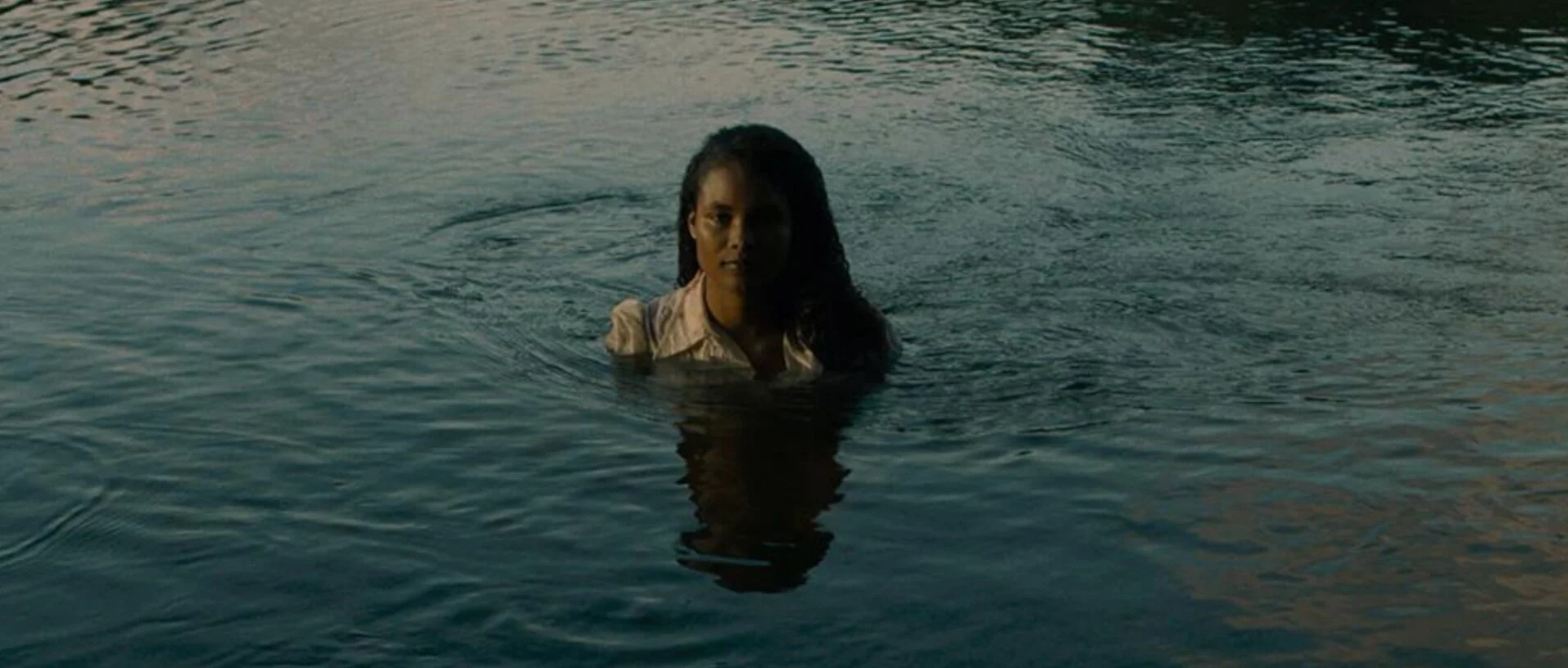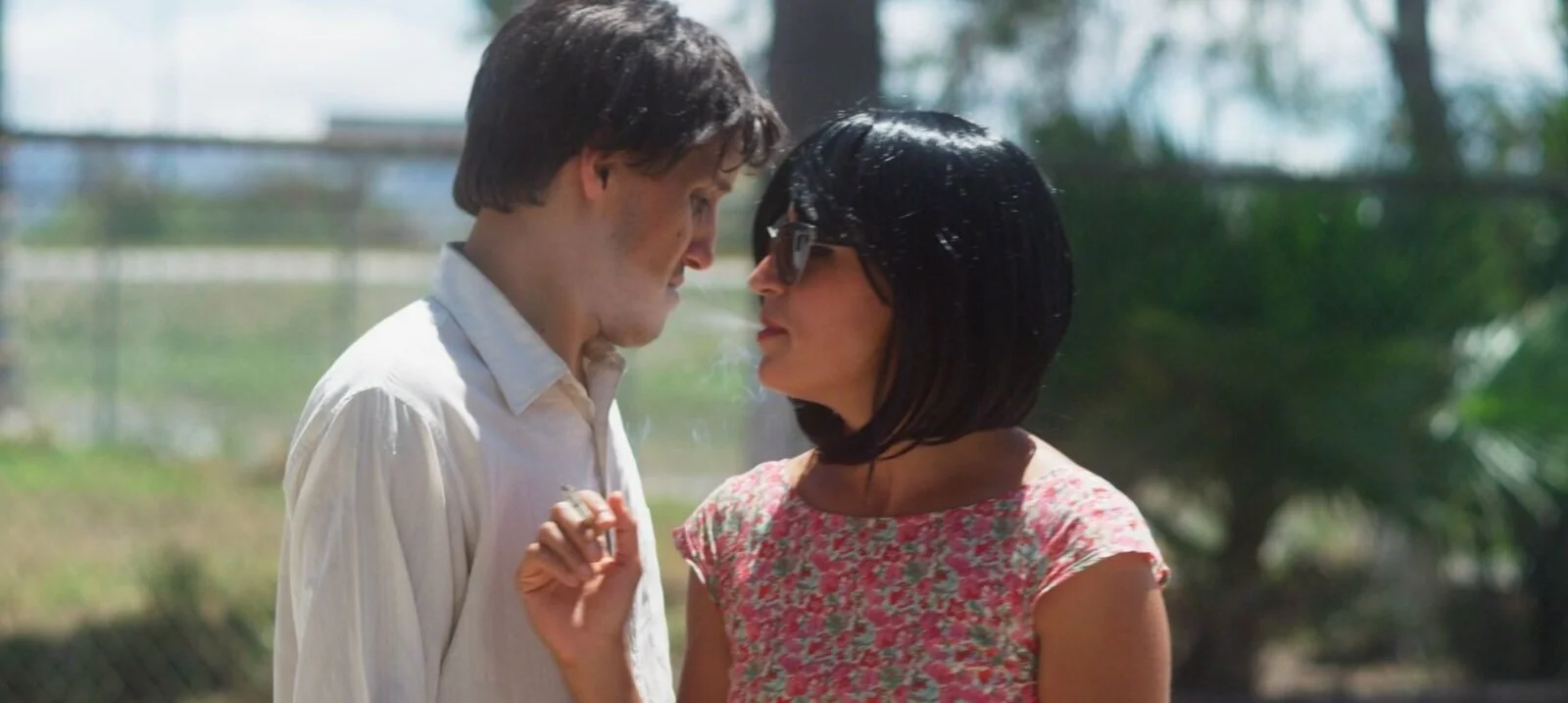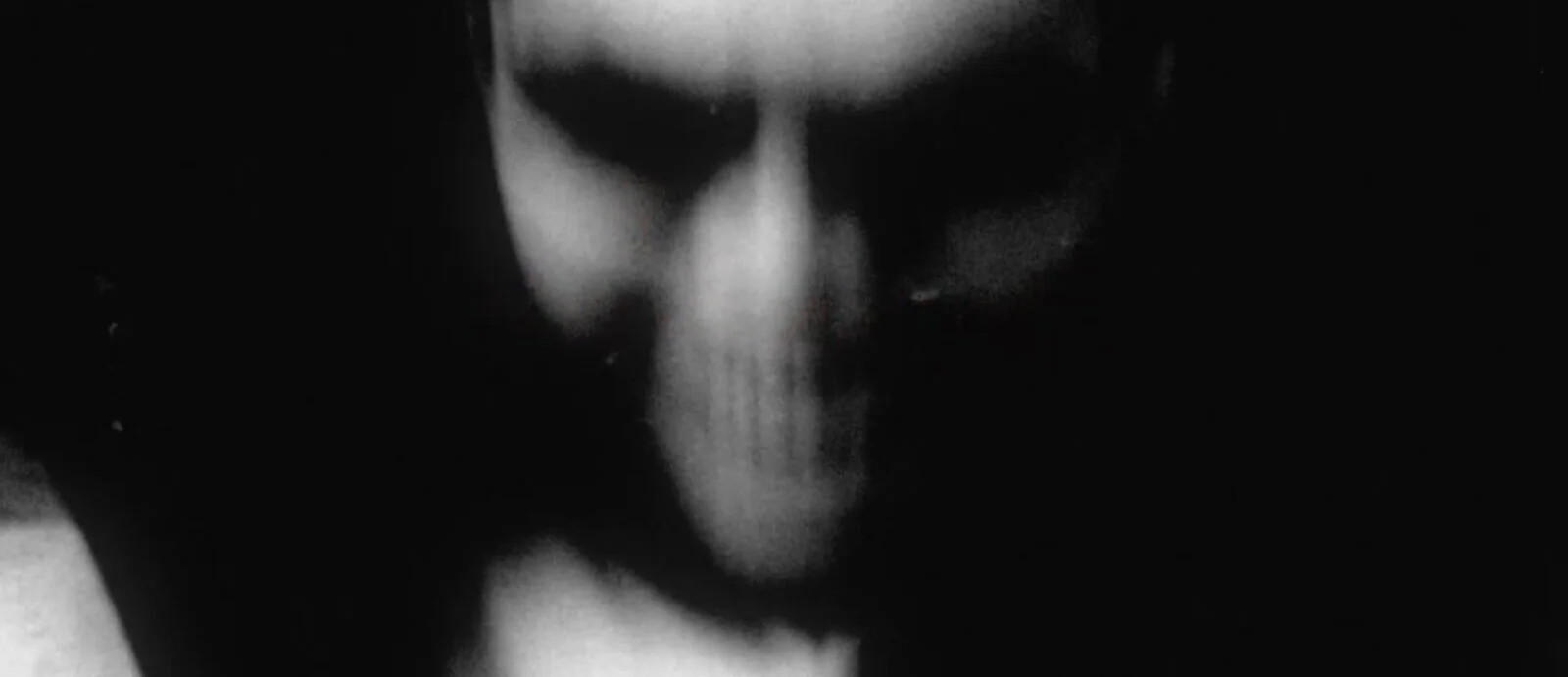The 58th edition of the annual New York Film Festival kicked off yesterday with a combination of drive-in screenings in Brooklyn and Queens and online streaming, and this year includes some Latin American films from Mexico, Argentina, Venezuela, Ecuador, Brazil and Chile. Check out all of the Latin American titles:
ISABELLA
(Matías Piñeiro, Argentina, 2020, 80 min. In Spanish with English subtitles)
Argentine filmmaker Piñeiro continues to explore the porous line between performance and daily ritual in his most visually striking film yet. As in such subtly magical dramas of the everyday as The Princess of France and Hermia & Helena, Piñeiro uses a Shakespeare text to anchor a loose yet intellectually rigorous examination of life’s loves, labors, and futile pursuits, all played out with the minutest of gestures. Isabella uses Measure for Measure as inspiration, with regular Piñeiro players María Villar and Agustina Muñoz as Mariel, a teacher with stage aspirations, and Luciana, a more established actress. The filmmaker jumps around in time, from the days leading up to a crucial audition to years later, after the women have moved on to other dreams; meanwhile we keep returning to their collaboration on an entrancing, James Turrell–like light installation. Piñeiro’s art has never been more graceful or structurally complex as in this work of solace amid anxiety and doubt.
TRAGIC JUNGLE / SELVA TRÁGICA
(Yulene Olaizola, Mexico, 2020, 96 min. In English, Creole, Maya, and Spanish with English subtitles)
In her accomplished fifth feature, Mexican filmmaker Olaizola immerses the viewer in a richly drawn, tactile experience that works as both a gripping adventure and a contemplative rumination on the brutality and splendor of nature. Set in the 1920s in the deep thickets of a Mayan tropical rainforest along the Rio Hondo—then the border between Mexico and British Honduras, now Belize—Tragic Jungle follows Agnes (Indira Andrewin), a young woman trying desperately to escape with her sister from the white British landowner she doesn’t want to marry. With the man armed and on her trail, she barely gets away, and is discovered by a troupe of chicleros—gum tree workers—who become both her rescuers and captors. Vibrantly shot by cinematographer Sofia Oggioni, Olaizola’s film becomes an entirely unexpected story of myth and superstition, in which the jungle itself seems like a living being, taking natural revenge on the men whose petty inhumanities bloody its trunks and vines.
I CARRY YOU WITH ME / TE LLEVO CONMIGO
(Heidi Ewing, USA/Mexico, 2020, 111 min. In Spanish with English subtitles)
Among the most emotionally resonant and innovatively conceived cinematic love stories in years, I Carry You With Me charts the burgeoning romance between Iván (Armando Espitia), a semi-closeted young father and restaurant worker, and Gerardo (Christian Vázquez), a high school teacher who has come to terms more fully with his sexuality. When Iván makes the decision to leave Mexico and find new life and work opportunities across the U.S. border, the two men must make difficult decisions about their future. In her narrative feature debut, Heidi Ewing (Oscar-nominated for Jesus Camp) unexpectedly and brilliantly incorporates documentary elements into a beguiling, humane tale in which everyday struggle is inextricable from transcendent romance.
FAUNA
(Nicolás Pereda, Mexico/Canada, 2020, 70 min.)
Protean filmmaker Nicolás Pereda always takes viewers on zigzag narratives whose complexities belie the sedentary nature of the characters at their center. His alternately ticklish and dark-toned latest feature mixes realism and light absurdity in the story of a young television actress who joins her estranged brother and new boyfriend—also an actor, though he has yet to graduate from bit player—to visit her family at her parents’ rustic home in the Mexican countryside. There, the couple deals with culture clash and familial rivalries, but Pereda has a metafictional trick up his sleeve that reveals the grim intimations of violence bubbling under the community. Fauna, taking its title from one of its characters, is a clever and entertaining inquiry into performance and the stories we tell.
THERE ARE NOT THIRTY-SIX WAYS OF SHOWING A MAN GETTING A HORSE / NO EXISTEN TREINTA Y SEIS MANERA DE MOSTRAR CÓMO UN HOMBRE SE SUBE A UN CABALLO
(Nicolás Zukerfeld, Argentina, 2020, 63 min.)
Nicolás Zukerfeld’s third feature is a wry, surprising work of filmmaking-as-criticism that begins as a kind of supercut of moments from the work of pantheon Hollywood auteur Raoul Walsh. This rhythmically entrancing parade of images traces a mysterious and amusing arc across the director’s vast oeuvre—but at the halfway mark, the film reinvents itself as an idiosyncratic, essayistic investigation into memory, cinema, and their shared mutability. There Are Not Thirty-Six Ways… reimagines cinema as a medium for the generation and transmission of ideas, and the results are by turns humorous, stimulating, and thrilling.
HER NAME WAS EUROPA
(Anja Dornieden and Juan David González Monroy, Germany, 2020, 76 min.)
The aurochs were a breed of wild cattle indigenous to Europe, North Africa, and Asia. Extinct since the early 17th century, these majestic, horned beasts have long held a mythological status, believed to embody supernatural powers. In the early 20th century, German scientists began a series of attempts to resurrect the species under the auspices of the Nazi regime; such experiments continue today in various forms. Berlin-based filmmakers Anja Dornieden and Juan David González Monroy use this history to fashion a poetic and deadpan 16mm work of fanciful nonfiction that calls attention to itself as a constructed version of a strange reality.
THE LOBBY
(Heinz Emigholz, Germany/Argentina, 2020, 76 min.)
“There is no Here here.” A character simply named Old White Male (John Erdman) holds court in the lobbies of various apartment buildings in Buenos Aires and expounds with measured disgust on death, consciousness, and the state of contemporary human relations. The man’s mostly unsolicited remarks form an unsparing, stitched-together modern-day monologue that alternates between absurd and chilling, reasonable and grotesque. Filmed in Buenos Aires in October 2019, Heinz Emigholz’s spare continuation—and sardonic distillation—of certain themes explored in The Last City is morbid, confrontational, and hilarious.
THE TANGO OF THE WIDOWER AND ITS DISTORTING MIRROR / EL TANGO DEL VIUDO Y SU ESPEJO DEFORMANTE
(Raúl Ruiz & Valeria Sarmiento, Chile, 2020, 64 min.)
This latest dispatch from beyond the grave by the late legendary Chilean director Raúl Ruiz (completed, as ever, by his widow, the filmmaker Valeria Sarmiento) takes as its basis an abandoned 1967 effort by Ruiz, begun well before his exile from Chile after Augusto Pinochet’s brutal seizure of power in 1973. Working from the ethereal, surrealistic, Poe-like images that Ruiz left behind, Sarmiento has reconstructed the story her husband had wished to tell: that of a sickly literature professor haunted by the memory of his wife (who has recently committed suicide) and attempting to carry on as normal despite the ever-weakening boundary between his dreams and waking life. The Tango of the Widower is paradoxically both an early Ruiz film and a radically contemporary experiment, at once the birth of a new work and the resurrection of a work that never was.
’Shorts Program 3: Letters from Home’
MALEMBE (Luis Arnías, Venezuela/USA, 2020, 12min.)
Through its rhythmic montage and mix of observational and surreal imagery, Malembe forges oblique linkages between the United States and Venezuela, conveying the strange dissociation of being uprooted, of living between places. As a knife cuts through sky, through snow, and through fruit, quasi-ethnographic footage—with its conventional markers of music, food, ritual—joins with home-movie auto-portraiture of a New England winter, communicating a sense of dislocation at once vertiginously queasy and absurdly comic.
NOTES, IMPRINTS (ON LOVE): PART I (Alexandra Cuesta, USA/Ecuador, 2020, 19 min.)
Alexandra Cuesta’s film collects sketches, texts, and minor epiphanies. Summery landscapes, lakeside reveries, desolate construction sites and diners, blighted strip mall suburbia, sunny autumns—these fragments accumulate into a portrait of domesticity and love that nonetheless betrays a quiet unease, with the camera becoming a tool for the exorcism of specters.
CORRESPONDENCE (Carla Simón and Dominga Sotomayor, Spain/Chile, 2020, 20 mIn.)
In patchwork epistolary form, a correspondence between two filmmakers unfolds in images, sounds, and words, as they report on their lives, exchange pictures, and describe their dreams. The recent deaths of elder relatives raises the question of maternity and the futures of their families, their countries, and their art. Is it possible to make films and have children?
’Shorts Program 6: Here and Elsewhere’
’AQUÍ Y ALLÁ (Melisa Liebenthal, Argentina/France, 2019, 21 min.)
Through digital interfaces, maps, and archival materials, Melisa Liebenthal jumps between past and present, here and there, to trace the complicated path of her family’s migration from 1930s Berlin to pre-revolutionary China to Buenos Aires, where the filmmaker was born. The material world, scanned and converted into data, becomes material again, scrambling the concepts of location, national origin, and home.
APIYEMIYEKî? (Ana Vaz, Brazil/France/Portugal/Netherlands, 2019, 27 min.)
Through dynamic superimpositions and collisions of sound and image, Ana Vaz reanimates an archive of hundreds of drawings made by the Waimiri-Atroari people of the Brazilian Amazon. Now in the care of literacy educator and indigenous rights activist Egydio Schwade, these materials provide vital firsthand collective documentation of the violent oppression, land expropriation, and genocide of native Amazonian peoples under Brazil’s military dictatorship.















